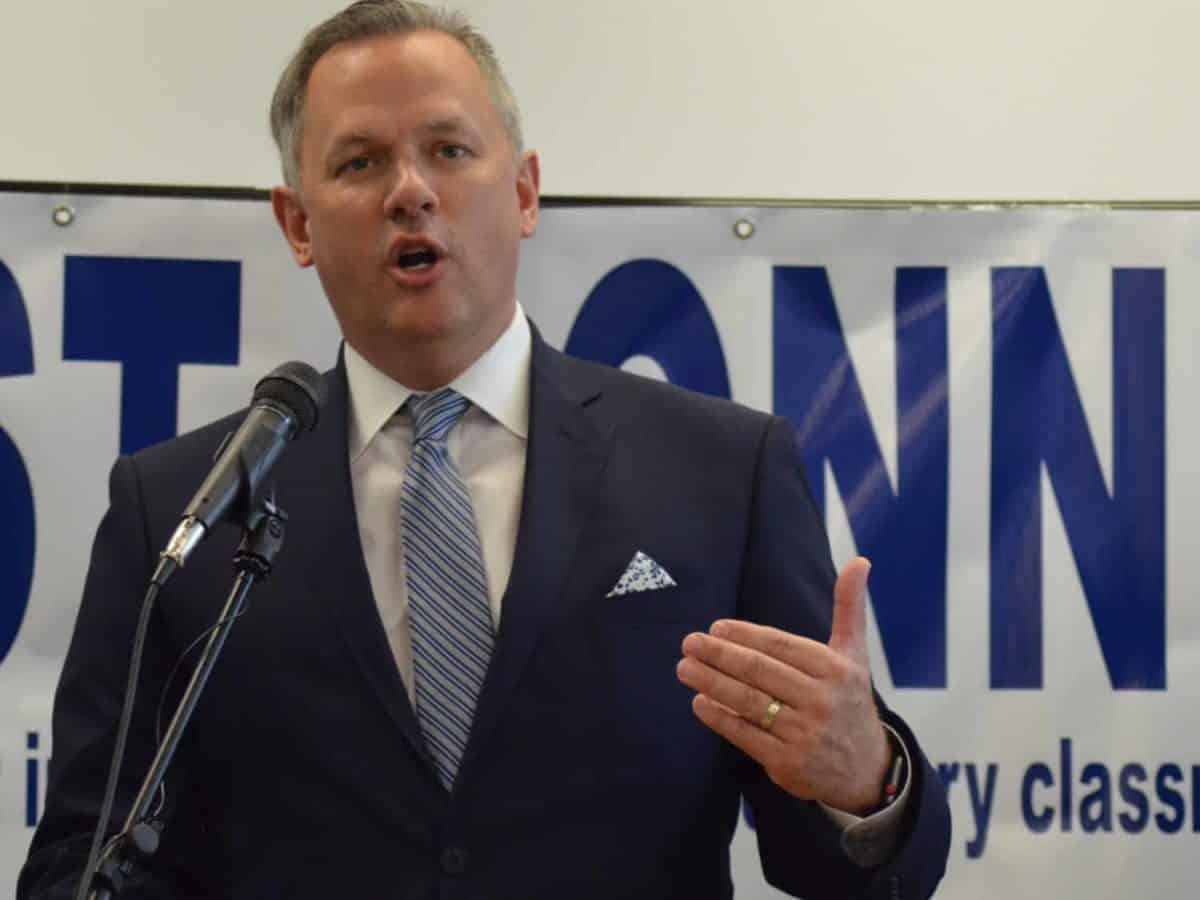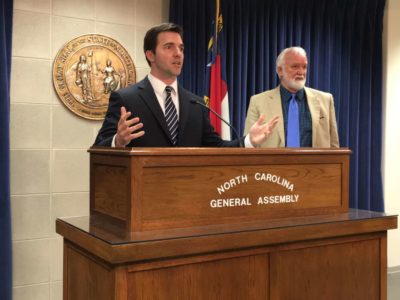

The chairman of the Federal Communications Commission, Ajit Pai, joined Lieutenant Governor Dan Forest and other state leaders to celebrate a goal more than 10 years in the making: connecting every classroom in the state with broadband Internet access.
The School Connectivity Initiative launched in 2006 with a number of targets, including broadband in every class. Forest said it will happen this year, making North Carolina the first in the nation to achieve that goal.
“That’s about to happen,” he said. “And certainly, we have started to see the benefits from this as well.”
The event was held at Graham High School in the Alamance-Burlington School System to highlight the success that digital learning can bring a school. Forest said that partly through the use of digital technology, Graham — which was an F school — has been able to steadily improve. According to the most recent School Performance Grades, Graham High had a C for the 2016-17 school year and exceeded academic growth.
“We’re investing all this money, but now we’re actually seeing results for the work that we’ve done,” Forest said.
While North Carolina has been on a course to connect every classroom with Internet for a while now, it was only with the advent of the state’s Digital Learning Plan that it took a path to becoming first in the nation to do so. The Friday Institute for Educational Innovation began work on that plan for the state in 2014. Forest said the plan initially saw North Carolina achieving full Internet connectivity to all classrooms by 2022.
“That’s just way too long. I said, ‘What do we have to do to speed this thing up?” he said.
He said the connectivity milestone is important because access to digital resources in the classroom gives rural school districts more parity with their richer and better outfitted urban neighbors. He also believes North Carolina could achieve another first: becoming the first state to have every home connected to the Internet.
Pai spoke about the partnership the FCC had with North Carolina in making this goal happen. Through its E-rate program, the FCC has helped fund the connectivity North Carolina is on the verge of achieving.
“I’m proud to say that we have been a proud partner with the state of North Carolina in this initiative,” he said.
State Superintendent Mark Johnson also attended. In his remarks, he congratulated Forest on the impending milestone and pointed out that in North Carolina, there are 18,000 jobs open in the field of computer science. Johnson also said this issue has been an important one for him dating all the way back to his campaign for office. He ran on a platform that included the importance of digital technology to help develop career pathways for students
Forest said that connectivity is just one step in North Carolina’s plan for digital learning. Content and curriculum, data management, and more are parts of the state’s Digital Learning Plan that need improvement.
“Connectivity, believe it or not, is one of the easier parts,” he said.
He said that the Digital Learning Plan is about moving North Carolina schools to a competency-based system, where students can progress in their education as they are able to master subjects. And that means more than just giving students devices connected to the Internet.
“A lot of people think it’s about the devices themselves…that’s really the last component,” he said.


